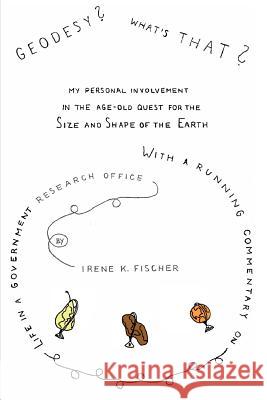Geodesy? What's That?: My Personal Involvement in the Age-Old Quest for the Size and Shape of the Earth » książka
Geodesy? What's That?: My Personal Involvement in the Age-Old Quest for the Size and Shape of the Earth
ISBN-13: 9780595363995 / Angielski / Miękka / 2005 / 400 str.
Geodesy? What's That?: My Personal Involvement in the Age-Old Quest for the Size and Shape of the Earth
ISBN-13: 9780595363995 / Angielski / Miękka / 2005 / 400 str.
(netto: 94,98 VAT: 5%)
Najniższa cena z 30 dni: 99,18 zł
ok. 16-18 dni roboczych
Bez gwarancji dostawy przed świętami
Darmowa dostawa!
Geodesy (the measurement of the size and shape of the earth), fascinating since the time of Erathosenes, became a basic science for the space program. Irene Fischer was a leader in the construction of the World Geodetic System (has an Earth reference ellipsoid named in her honor) when it was still being done by surveyors, piecing together terrestrial, gravitational and astronomical data. By the 1970s, satellite geodesy and marine geodesy were just coming into their own. Using her career, Fischer revels in explaining how the science unfolded, and how misunderstandings occur across scientific fields, e.g., why the "standard ocean" and the geoid do not easily translate across the fields of oceanography and geodesy. Her account should appeal to those writing the history of women in science. Government science, too, is less well studied than academic science even though some fields, such as geodesy, were always government led. Fischer provides food for thought, as well, to those who claim to study the management of science in bureaucratic settings different from those of industry or academia. Peppered among these themes are Fischer's solutions to historical mysteries such as why Columbus' used a figure for the size of the earth's circumferance that was so much smaller than Erastothenes' or Posidonius' (with the added benefit of making it easier to persuade his patrons).











